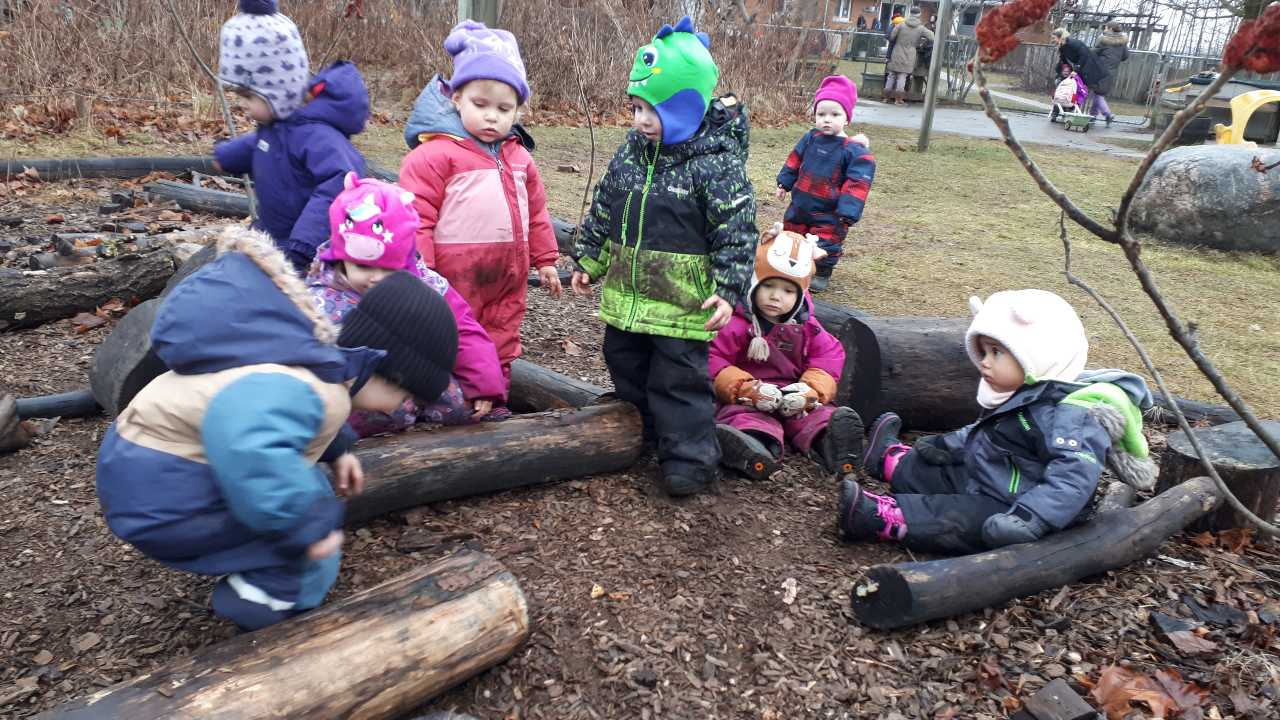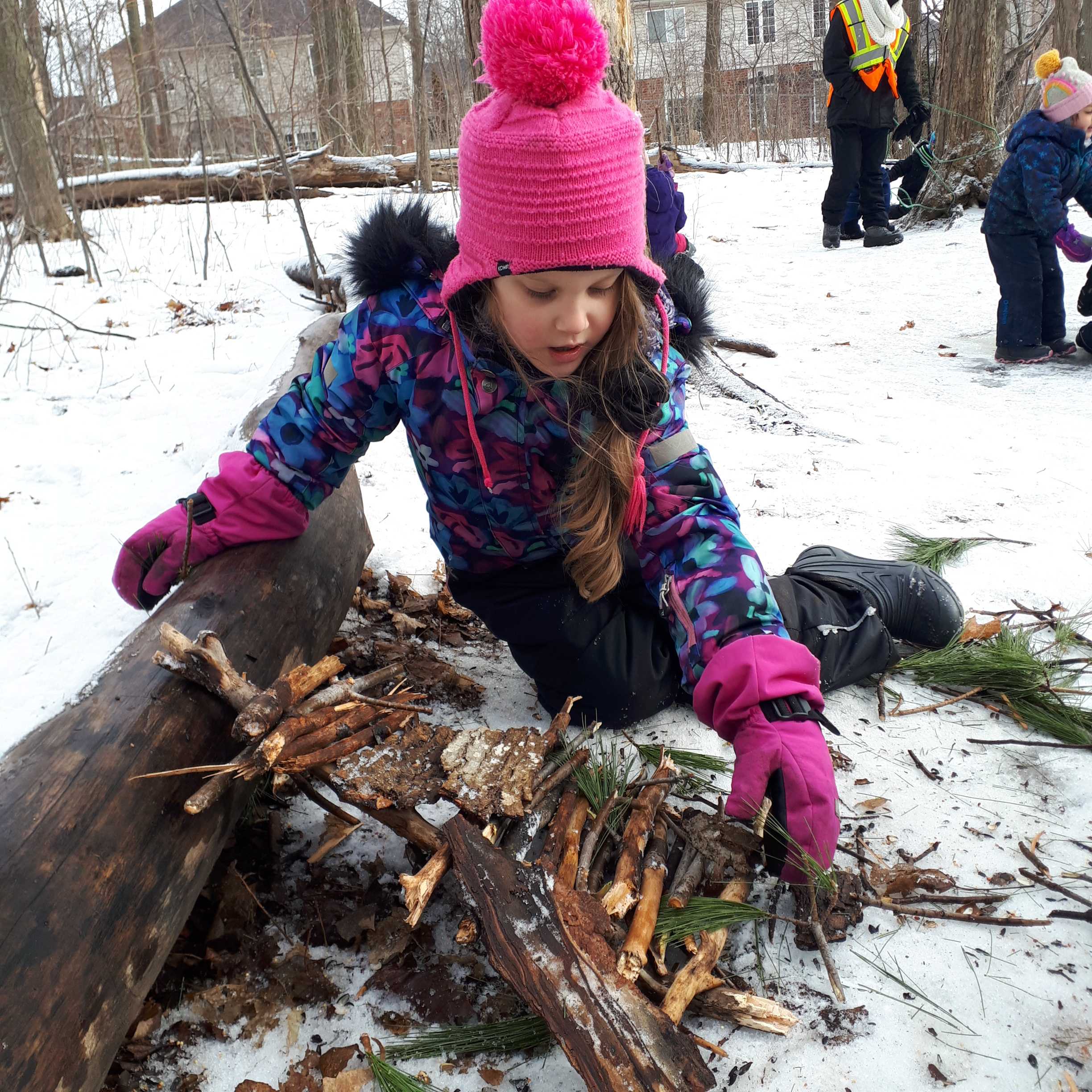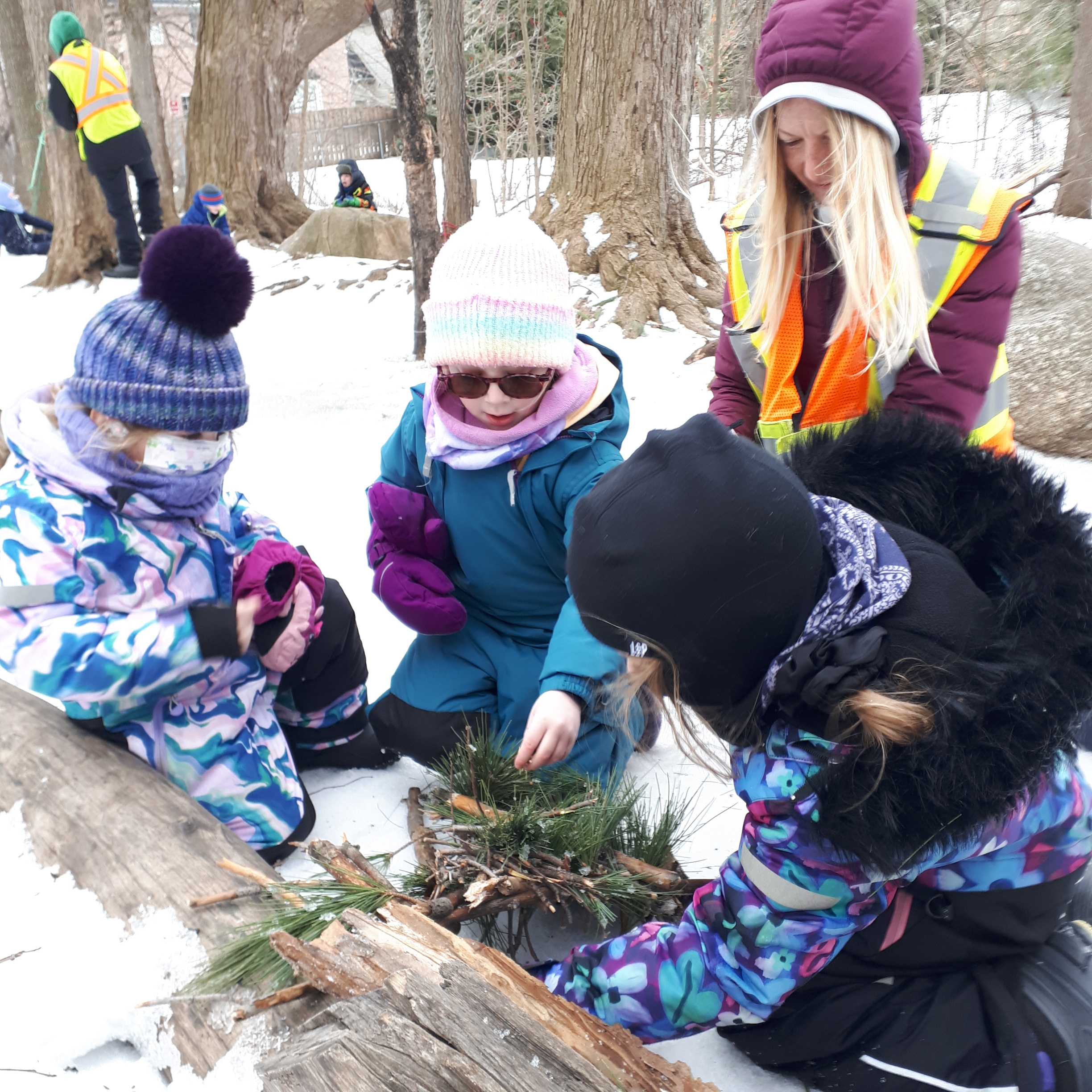
Three cheers for the Canadian Pediatric Association on Embracing Risky Play and Nurturing Healthy Childhood Development
Hey there, fellow early childhood educators!
Grab your toques and join me on a journey into the wild and wonderful world of outdoor play. Today, we're diving into some exciting new research from the Canadian Pediatric Association's Canadian Pediatric Association Position Statement that explores the delicate balance between fostering healthy childhood development and preventing injuries through outdoor risky play.
Picture this: a group of giggling toddlers climbing trees, balancing on logs, and exploring the great outdoors with all the wonder and curiosity that childhood brings. It's a scene straight out of a storybook, but it's also a vital component of a child's development. As educators, we play a crucial role in facilitating these experiences while ensuring the safety of our little adventurers.

So, what exactly is risky play, and why is it so important? According to the Canadian Pediatric Association, “Risky play refers to activities that involve a certain degree of challenge, uncertainty, and the potential for physical injury” (Canadian Pediatric Association, 2024). Think climbing structures, rough-and-tumble play, and exploring unfamiliar terrain. While it may sound nerve-wracking at first, risky play is essential for promoting resilience, independence, and problem-solving skills in children.
But here's the catch: as much as we encourage exploration and adventure, we also have a responsibility to minimize the risk of serious injury. That's where the concept of "navigating the balance" comes into play. It's all about creating environments that allow children to push their boundaries and test their limits in a safe and supervised manner.
So, how do we strike that delicate balance between encouraging adventurous play and keeping our little ones safe? The Canadian Pediatric Association offers some valuable insights:
- Supervision with a Side of Freedom: As educators, our role is to supervise and support children during outdoor play while also giving them the freedom to explore and make their own choices. By striking the right balance between supervision and autonomy, we empower children to take calculated risks and learn from their experiences.
- Designing Play Spaces with Purpose: The layout and design of outdoor play spaces can have a significant impact on the types of activities children engage in. Incorporating natural elements like rocks, logs, and hills encourages imaginative play and physical exploration while also providing opportunities for risk-taking in a controlled environment.
- Educating Families and Educators: It's essential to involve families and educators in conversations about the benefits of risky play and the importance of supervision. By fostering open communication and providing resources on injury prevention strategies, we can work together to create a culture of safety and adventure.
- Building Confidence Through Risk Management: Teaching children how to assess risks and make informed decisions is a valuable life skill that will serve them well into adulthood. By gradually introducing challenges and offering guidance along the way, we help children build confidence and resilience in the face of uncertainty.
 And guess what…that’s exactly what our Nature-Based Educator course is designed to help you in achieving for your practice. Are you ready to embark on a transformative journey that brings nature into the heart of your classroom? Join us for the Discovery Professional Learning Nature-Based Educator Course! Dive into this 12-month immersive course designed to ignite creativity, foster environmental stewardship, and unlock the power of Nature-Based Learning. Gain practical strategies, connect with like-minded educators, and discover the profound impact of nature-based education on child development. It's time to break free from the confines of traditional teaching and embrace the wonders of the great outdoors. SIGN UP TODAY! and embark on a path of discovery that will shape the future of early childhood education!
And guess what…that’s exactly what our Nature-Based Educator course is designed to help you in achieving for your practice. Are you ready to embark on a transformative journey that brings nature into the heart of your classroom? Join us for the Discovery Professional Learning Nature-Based Educator Course! Dive into this 12-month immersive course designed to ignite creativity, foster environmental stewardship, and unlock the power of Nature-Based Learning. Gain practical strategies, connect with like-minded educators, and discover the profound impact of nature-based education on child development. It's time to break free from the confines of traditional teaching and embrace the wonders of the great outdoors. SIGN UP TODAY! and embark on a path of discovery that will shape the future of early childhood education!
As we navigate the ever-changing landscape of early childhood education, let's remember the power of outdoor play in shaping healthy development and fostering a lifelong love of exploration. By embracing the spirit of adventure while prioritizing safety, we can create environments where children thrive, learn, and discover the world around them one muddy puddle at a time.
So, here's to embracing the messy, marvellous journey of childhood—one leap, climb, and tumble at a time!
